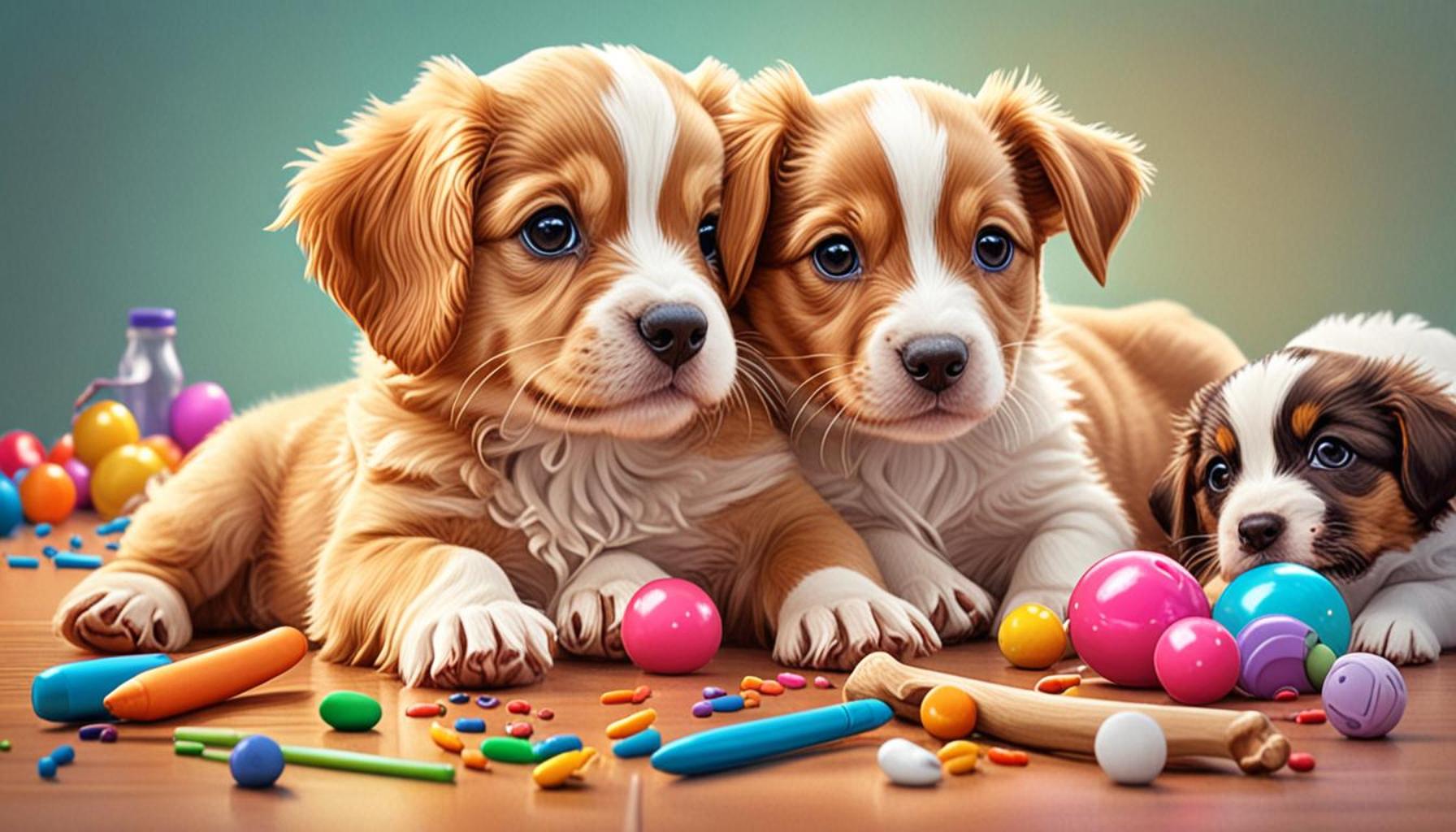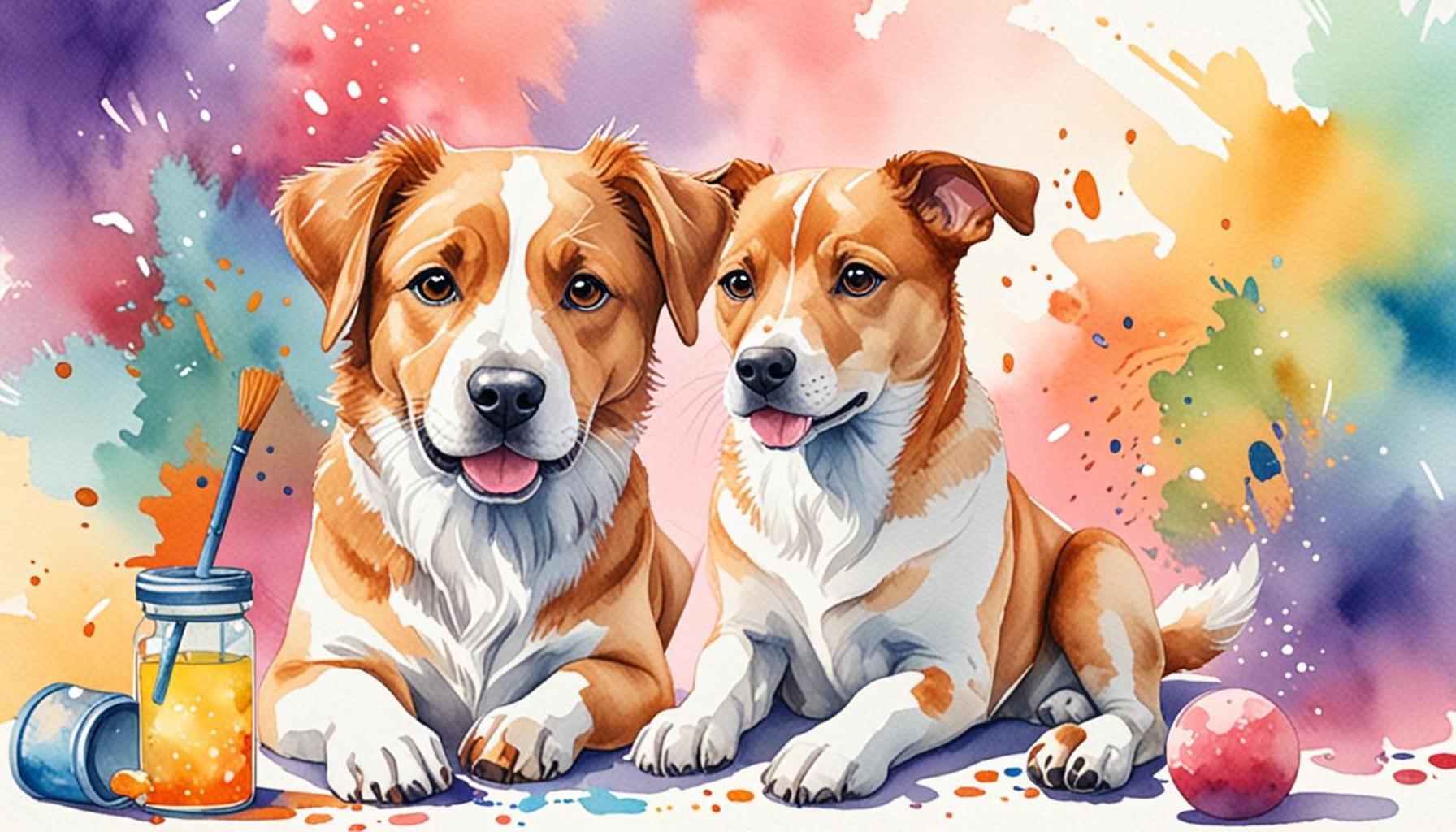Socialization Techniques for Puppies: Preparing Your Pet for Healthy Interactions

Understanding the Need for Puppy Socialization
Welcoming a new puppy into your home brings both joy and responsibility. One of the most profound responsibilities of pet ownership is ensuring your puppy experiences effective socialization. This process is not just a phase; it is a crucial foundation for a dog’s future interactions with the world. A well-socialized puppy grows into a dog that is comfortable and confident in various situations, reducing the chances of developing behavioral problems later in life.
The Importance of Early Socialization
The early months of a puppy’s life are critical for their development. During this period, their brains are highly receptive to new experiences, making it the perfect time to introduce them to a diverse array of people, animals, and environments. The benefits of this can be observed in various areas:
- Reduces Anxiety: Proper socialization helps your puppy to feel more at ease in unfamiliar settings. For instance, a puppy that has been socialized will likely handle visits to the veterinarian or meeting strangers with greater confidence.
- Promotes Confidence: Puppies exposed to different stimuli tend to build resilience and self-assurance, allowing them to adapt to new situations throughout their lives. A confident dog is less likely to exhibit fear-based behaviors, such as cowering or barking excessively.
- Enhances Training: Dogs that are well-socialized tend to learn commands and engage in training more effectively. With a calm demeanor fostered through positive experiences, your puppy can better focus during training sessions, ultimately strengthening the bond between dog and owner.
Research on Socialization and Behavioral Issues
Studies indicate that dogs lacking socialization are more prone to anxiety and aggression. According to a study published in the Journal of Veterinary Behavior, dogs that had fewer than ten encounters with other dogs and people before their fourth month were significantly more likely to develop behavioral issues. This statistic highlights the importance of getting it right early on.
Practical Socialization Techniques
As an attentive owner, there are numerous ways for you to effectively socialize your puppy. Engaging in varied experiences will shape your puppy into a well-rounded canine companion. Here are some practical techniques:
- Playdates: Organize gatherings with other vaccinated puppies. These informal meetings can teach your dog important social cues, such as how to play appropriately and understand body language.
- Group Classes: Consider enrolling in puppy training classes, where your dog can interact with other pets and learn basic commands in a structured yet fun environment. These classes often create a supportive community among puppy owners, which can enhance the social experience.
- Outings: Regularly take your puppy on walks in diverse environments, such as parks, cafés, or pet-friendly stores. Exposing your dog to different sounds, smells, and sights will help them adapt to everyday life.
By implementing these socialization techniques, you are not only investing in your puppy’s immediate comfort but also in their long-term happiness and adaptability. As your dog encounters and learns from a variety of situations, you’ll find that you both develop a deeper bond, leading to a more harmonious household and a confident, well-behaved pet.

DISCOVER MORE: Click here to learn about the therapeutic effects of pets
Effective Techniques for Puppy Socialization
When it comes to socialization techniques for puppies, the earlier you start, the better. The delicate window of social learning begins as early as three weeks of age and can last until about 16 weeks. During this crucial period, puppies are particularly open to learning and adapting to their surroundings. Implementing effective socialization techniques during these formative weeks can have lasting impacts on their behavior and temperament throughout their lives.
Creating Positive Experiences
One of the most important aspects of socialization is ensuring that your puppy associates new experiences with positive outcomes. This means you should approach socialization with a focus on maintaining a calm demeanor and introducing your puppy to various stimuli in a non-threatening manner. Here are some ways to create positive experiences:
- Use Treats and Praise: When exposing your puppy to new people or environments, reward them with treats and verbal praise to reinforce desirable behaviors. This could be when they interact calmly with a curious child or explore a new park.
- Take it Slow: Introduce new experiences gradually. If your puppy seems overwhelmed, take a step back and allow them to acclimate to their surroundings at their own pace. Patience is key; each positive encounter helps build their confidence.
- Leash Training: Get your puppy accustomed to wearing a collar and walking on a leash in different environments. This not only helps with obedience but also encourages them to explore a variety of social scenarios, from dog parks to city streets.
For new puppy owners, understanding the balance between encouraging exploration and respecting your puppy’s boundaries is essential. A hurried approach might lead to a negative experience, making your puppy fearful or anxious in similar situations later on.
Engagement with Different Environments
Puppies benefit immensely from exposure to various environments where they can learn about different sights, sounds, and smells. To facilitate this process, consider the following ways to engage your puppy in diverse settings:
- Puppy-Friendly Events: Attend local pet fairs or puppy playgroups where your dog can meet other animals and people. These events often feature varied activities that challenge your puppy’s comfort levels in a controlled environment.
- Utilize Urban Areas: If you live in a city, take your puppy on outings where they can navigate busy streets, ride public transportation, or experience bustling outdoor cafes. Exposure to different sounds, like traffic or crowds, can desensitize them to distractions later in life.
- Visit Nature: Take trips to parks or hiking trails where your puppy can explore different terrains and encounter wildlife. These natural settings provide opportunities for your pet to engage with both the environment and other dogs.
By prioritizing positive interactions and a variety of experiences, you are laying the groundwork for your puppy’s future as a well-adjusted adult dog. Each encounter is a stepping stone toward nurturing a confident pet that embraces the world around them rather than fearing it.
When it comes to the socialization techniques for puppies, it’s crucial to understand the different elements that contribute to a well-adjusted canine companion. This stage of puppy development is one of the most important phases that can affect their behavior for a lifetime. Early and proper socialization not only helps prevent behavioral issues but also encourages a pup to adapt to various situations and environments.
One effective technique involves exposing your puppy to new experiences gradually. This can include meeting different animals, encountering various people with diverse appearances, and getting used to a variety of noises. The key is to make these experiences positive; for example, offering treats when your puppy meets a new dog can help them associate such interactions with positive outcomes.
Another powerful approach is the practice of group classes or playdates. Enrolling your puppy in organized group settings where they can interact with other dogs under the guidance of a trainer can significantly enhance their social skills. This interaction is essential, as it not only teaches them communication cues but also builds their confidence in social situations.
Furthermore, it’s equally important to monitor and manage interactions to prevent negative experiences that could lead to fear or aggression. Always observe your puppy’s body language, and intervene when necessary to maintain a safe and positive environment for both your puppy and others.
The journey of socializing your puppy should also focus on establishing a strong bond between you and your pet. Positive reinforcement techniques, such as treats or praise, when your puppy exhibits good behavior in social settings can lead to a more trusting relationship. This trust lays the foundation for a lifetime of healthy interactions.
Beyond the immediate benefits, socialization can foster long-term mental health, significantly reducing anxiety and fear responses in puppies. As they grow into adults, these habits can help them become adaptable and well-mannered members of society, contributing to a harmonious household and community.
| Category 1 | Category 2 |
|---|---|
| Exposure to New Experiences | Gradually introducing various sights, sounds, and people to create positive associations. |
| Group Classes | Organized interactions with other dogs in a controlled environment to improve social skills. |
DIVE DEEPER: Click here to discover the emotional journey of adopting rescued animals</p
Building Relationships Through Play and Training
Engaging your puppy in play and training is vital for creating social bonds and reinforcing desired behaviors. Not only does it serve as an avenue for socialization, but it also instills essential skills that promote a harmonious coexistence with both people and other pets. Here are some effective methods to incorporate play and training into your puppy’s routine:
- Interactive Play: Incorporate interactive toys, such as tug ropes or fetch balls, into your puppy’s playtime. This not only helps in releasing pent-up energy but also fosters a cooperative spirit. Playing with other dogs can significantly boost your puppy’s confidence in social situations, sharpens their understanding of canine communication, and teaches them to read body language effectively.
- Basic Obedience Training: Simple commands such as “sit,” “stay,” and “come” can pave the way for positive interactions. Using positive reinforcement techniques will not only strengthen the bond between you and your puppy but also make your pet more reliable during social encounters. Classes led by a professional trainer can also offer structured socialization opportunities.
- Group Training Classes: Enroll your puppy in group training sessions. These classes provide a controlled environment where your puppy can learn to focus amidst distractions, interact with other dogs, and develop their social skills under supervision, reinforcing their adaptability in various settings.
Maximizing socialization through play and training can help your puppy build stronger relationships with both humans and canine companions, setting the stage for well-rounded social interactions in the future.
Regular Exposure to Different Dog Breeds
Every dog has a unique personality influenced by their breed traits, which can sometimes lead to misunderstandings between dogs and their owners. Introducing your puppy to a variety of dog breeds provides invaluable lessons about different behaviors and social norms within the canine community. Here’s how to facilitate this learning:
- Dog Parks: Regular visits to dog parks can be an excellent way for your puppy to interact with various breeds in a safe environment. Observing other dogs’ behavior can help your puppy learn acceptable conduct and establish play styles that align with different breeds.
- Invite Friends with Dogs: Arrange playdates with friends or family members who have dogs of different breeds. Being around dogs that vary in size and temperament allows your puppy to learn adaptability and fosters a greater understanding of canine communication.
- Socialization Events: Participate in breed-specific meetups and local dog events. These environments offer a chance for your puppy to meet dogs of diverse backgrounds, reinforcing their confidence and putting them at ease in unfamiliar scenarios.
Understanding how to interact with various breeds not only benefits your puppy socially but also enhances their emotional resilience. By encouraging positive interactions, you are training your puppy to navigate differing personalities with ease.
Coping with Fear and Anxiety
While enthusiasm in socialization is vital, so is recognizing situations where your puppy may experience fear or anxiety. Addressing these feelings appropriately can prevent long-term behavioral issues that stem from negative experiences. Here are some strategies to help your puppy cope:
- Desensitization Techniques: Gradual exposure to the source of your puppy’s fear can help them overcome anxiety. For instance, if your puppy is fearful of loud noises, slowly introducing them to those sounds at a lower volume, paired with positive reinforcement, can foster a sense of security.
- Safe Spaces: Create a calm space for your puppy to retreat when they feel overwhelmed. It could be a cozy bed in a quiet room or an area with their favorite toys. Teaching your puppy that retreating to their safe zone is acceptable can help reduce anxiety.
- Monitor Body Language: Observing your puppy’s body language can reveal their comfort or discomfort levels. Signs such as tail tucking, avoiding eye contact, or frequent yawning may indicate stress. Learning to read these signs can guide you in adjusting experiences to maintain a positive environment.
By employing these strategies, you can help your puppy navigate challenging situations, equipping them with the tools they need to thrive socially.
DISCOVER MORE: Click here to learn about balanced nutrition for your pet’s health
Conclusion
In conclusion, mastering socialization techniques for puppies is not just an essential component of pet ownership; it is a pivotal factor in shaping a well-rounded, emotionally healthy dog. As we have explored, a combination of play, training, exposure to various breeds, and effective coping strategies for fear and anxiety are crucial for fostering positive interactions both with humans and other dogs. By creating an inclusive environment that encourages diverse experiences, you are laying a foundation for your puppy’s future social competence.
The journey of socialization starts early and requires ongoing commitment, patience, and understanding. Engaging in interactive play and structured training helps build trust and reinforces good behavior, while regular exposure to different breeds allows your puppy to discern the nuances of canine communication. Additionally, recognizing signs of fear or anxiety provides you with the necessary tools to help your puppy navigate their world confidently.
Ultimately, a well-socialized puppy grows into a friendly, adaptable adult dog, capable of forming strong relationships and thriving in various social situations. As you embark on this rewarding journey, embrace the learning experiences that come with socialization, and remember that each interaction contributes to your puppy’s overall development. You hold the keys to their social future, so take the time to connect, educate, and nurture your furry companion.
For further insights and guidance, consider engaging with local dog-training communities or professional trainers who can offer tailored advice, ensuring your puppy reaches their full potential in social interactions.



